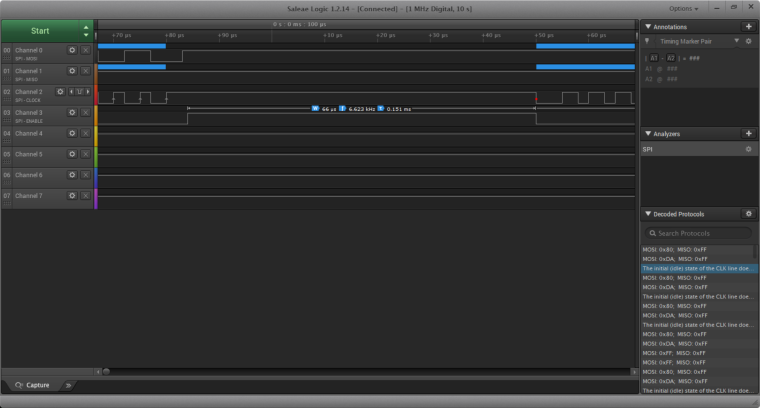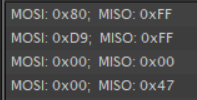@Lazar-Demin As I was seeing previously writebytes followed by readbytes causes too much delay between the read and write transaction and de-asserts chip-select causing loss of the read result. I assume keeping the clock and cs going and populating rx_buffer during the write should be a good solution, actually I belive xfer should be modified to populate rx_buffer anyway since a lot of SPI devices have an echo functionality where the MISO echoes MOSI to tell the driver that the chip is acknowledging data coming in.
My suggestion:
Replace this line with read equivalent size of the xfer or xfer2 write buffer so that data read in from the kernel driver actually reflects whatever the SPI slave is placing on the MISO during the write. Passing read length of 0 seems like a waste. Simply pass it the length of the write buffer, so that we get actual data rather than malloc noise.
Also not sure the purpose of this line, why should the driver populate xfer struct with read_buffer data ? As long is data is read correctly during the full-duplex xfer we should be fine.
Another read
A third read makes the full duplex limitation and need for mediatek special xfer3 clear. So the ioctl explicitly needs to null the xfer tx buffer pointer during the 2 read bytes for this to work.
xfer3 would a possible solution once I get the onion toolchain going and can actually compile the python-spidev. Any assistance and mods from your side to implement the patch would be awesome.


